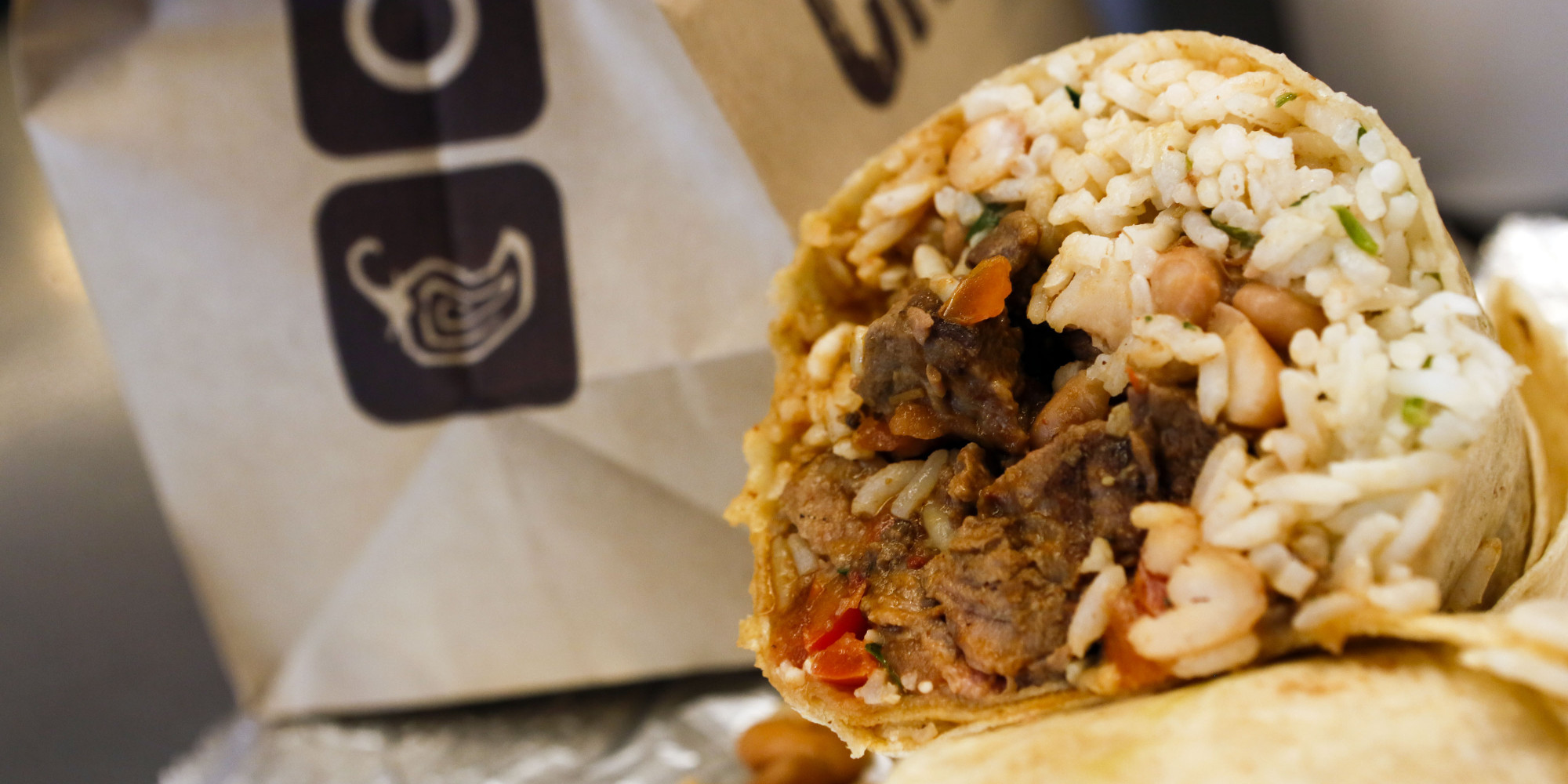E.Coli Reported at 43 Chipotles

Photo Credit: Huffington Post
This past Saturday, hundreds of thousands flocked to their local Chipotle restaurant in search of the eagerly awaited three dollar burrito, promised to any customer dressed in Halloween attire after five o’clock on October 31.
For certain residents of the Pacif- ic Northwest, however, the illusive burrito remained unattainable due to the recent closing of forty-three Chipotle locations across Washing- ton and Oregon. The forty-three locations have been closed as a pre- cautionary measure, as six of the lo- cations were recently linked to cases of E. coli illness in the two states. While the number of confirmed cases currently rests around three dozen, it is expected that the num- bers of those affected will rise in the coming days. From Sunday to Tues- day alone, the number of reported cases nearly doubled.
Escherichia coli or E. coli, as it is more commonly known, is a bac- terium found in the digestive tracts of humans and animals. While the bacterium comes in many forms (most of which are harmless), cer- tain strains can create major health problems including anemia and kidney failure. The strain identified in relation to Chipotle (the Shiga- toxin producing E. coli) is a more common form of the bacterium, which commonly uses food as its medium for infection. According to the New York Times, Shiga-toxin producing E. coli is one of the less severe forms of the illness. The E. Coli strain causes symptoms similar to food poisoning that tend to last less than a week, so it is likely that there are more cases related to the Chipotle outbreak that will go un- reported.
Despite the seemingly relative harmlessness of the recent E. coli outbreak, many remain uneasy about the high amount of food- related contamination connected to Chipotle. The restaurant, in addi- tion to facing candid criticism from the public in regards to their safety standards, has seen a large drop in the price of its shares as well. And Charmaine Denise Mode, a regis- tered nurse from Vancouver, Wash- ington, is currently in the process of filing a lawsuit against the company after contracting E. coli from its burrito bowl at Chipotle.
The Atlantic states that this is the third report of food-contamination that Chipotle has encountered in the last three months, an extremely high number for a company that promotes its healthy, beneficial op- tions. Carlo Tan-Alberto ’18 states “[the recent outbreak] deeply con- cerns me, as both my friends and I eat Chipotle as often as possible. The fact that such an issue is emerg- ing from a restaurant that consis- tently promotes its high quality of food lowers my trust in the food industry as a whole.”
Alberto’s sentiment has been echoed across the United States, as opposition to the company’s practices appears to have been growing in the past year. In April of 2015, Chipotle announced that it would be eliminating genetically modified ingredients from its menu entirely. This past September, however, the company was sued due to alleged false advertising, as the meat used in their burritos and burrito bowls is allegedly fed corn and soy feed that is full of GMOs.
Although the source of the E. coli outbreak has yet to be positively identified, it is suspected that the outbreak is connected to vegeta- bles served by the restaurant dur- ing mid-October. While E. coli is more commonly associated with meat products, the number of vegetable-related incidences has increased dramatically in the last decade. In September of 2006, nearly three hundred people con- tracted E. coli after ingesting con- taminated spinach.
Despite the restaurant’s near unwavering boasting of its out-of- the-box, holistic approach to fast food, it seems that regardless of how good mass producing restaurants’ claim their ingredients are, the concept of “fast” in relation to food does not always bode well for customers.


